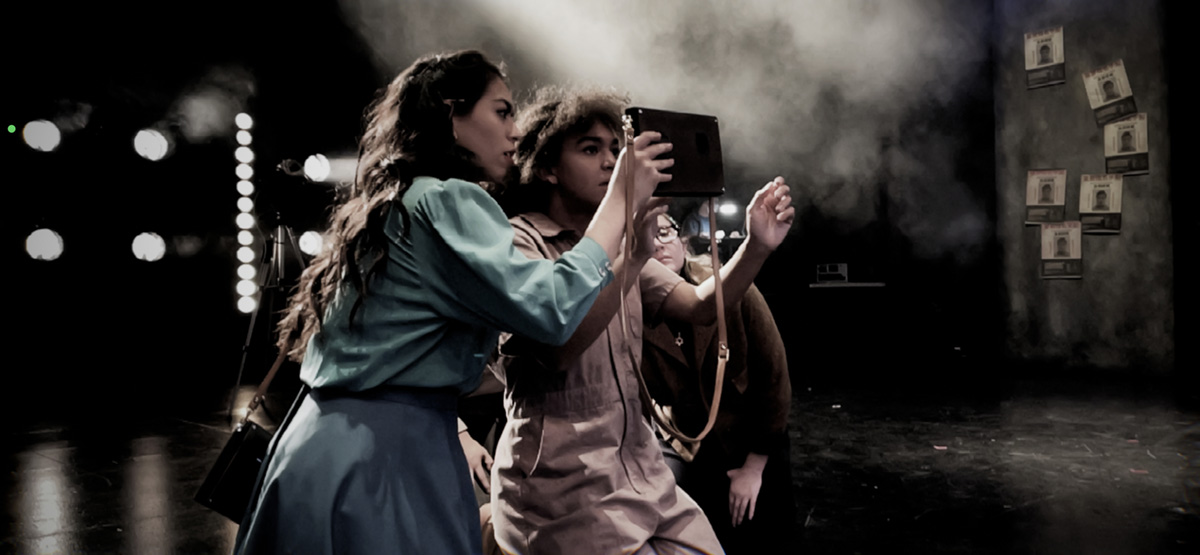
‘A Most Favored Nation’ offers unique augmented reality theater experience – Daily Bruin
If the phrase “augmented reality theater” sounds unfamiliar, allow “A Most Favored Nation” to demonstrate.
In conjunction with the Center for Research in Engineering, Media and Performance, the UCLA School of Theater, Film and Television is welcoming the UCLA community to the live-to-tape immersive theater experience with “A Most Favored Nation.” The play’s action occurs in 1963 Chicago yet extends three sets of characters’ storylines across two alternate timelines, allowing viewers to choose which aspects of the production to follow. Jeff Burke, REMAP founding executive director and theater professor in-residence who served as lead faculty on the project, said UCLA community members can access the taped performance online after Feb. 5.
“I initiated (the project) in 2019 as a continuation of the experimentation with augmented reality that we had been doing in school for some time,” Burke said. “(I) taught a series of classes that brought students together, came up with the concept, wrote the story, executed the production (and) developed the software.”
[Related: Students embrace absurdity, foster arts community with their production company]
“A Most Favored Nation” takes inspiration from the Amazon Prime Video series “The Man in the High Castle,” which adapted its screenplay from a 1962 novel of the same name. The original novel takes place in an alternate reality where the Axis Powers triumphed in World War II, but a book provides a gateway to the reality of the Allied victory. In the television series, newsreels function as this gateway, and “A Most Favored Nation” further adapts the newsreels into mobile phones using augmented reality technology, Burke said.
Alumnus and co-director Mira Winick said she focused primarily on the AR component of the production. The alternate reality in which the Axis Powers win paradoxically occurs in real life, meaning the set exists in the tangible world, Winick said. The second timeline more closely reflects history but occurs in a world created by AR technology, Winick said, and by looking through the camera of a mobile phone, audiences perceive the AR world superimposed on the real world.
“I had never directed something on this scale with AR mostly because there aren’t projects like that, even in the industry,” Winick said. “It’s just not where people are using the technology right now, so I was really fortunate to get to do it because it’s still the ground level of this developing technology.”
While Winick managed the AR production, alumnus and co-director Jean Carlo Yunen Arostegui said he handled the action in real life, which involved directing the onstage actors as well as their interactions with AR technology. Arostegui said closures due to the COVID-19 pandemic greatly affected scheduling as “A Most Favored Nation” was supposed to open to live audiences in fall 2020, with pre-production beginning in 2019.
[Related: Student film grapples with grief, heartache as homesickness in ‘Fragmentation of Home’]
Despite production delays, alumnus Jen Zhao, who served as one of the writers for the show, said COVID-19 closures allotted the writing team more time to respond to current events. The writers were able to engage in greater conversations and incorporate elements of the rapidly evolving political climate in real time, Zhao said. Extra time was not the only silver lining of the delay – as the director chiefly concerned with AR, Winick said the adjustment from a live to recorded performance may expand the viewing experience.
“The way we’ve designed it is, once you make a choice, you can’t go back and watch it in time, but you could rewatch the entire experience,” Winick said. “Presumably, when it was live, you could have come back multiple nights, but it seems like more of a commitment to go in multiple nights to a show than to watch it on a screen.”
As “A Most Favored Nation” places the responsibility of choice on the viewer, Burke said the project’s purpose lies in the presentation of modern-day challenges through innovative storytelling techniques and technologies. As a writer, Zhao said the team of “A Most Favored Nation” deliberately created a piece without any specific messages or lessons.
“I don’t intend to have the piece even make one clear, definitive statement,” Zhao said. “I’d rather have the piece be exploratory and allow the viewers to reflect on themselves, their lives and the world around them.”
This content was originally published here.


